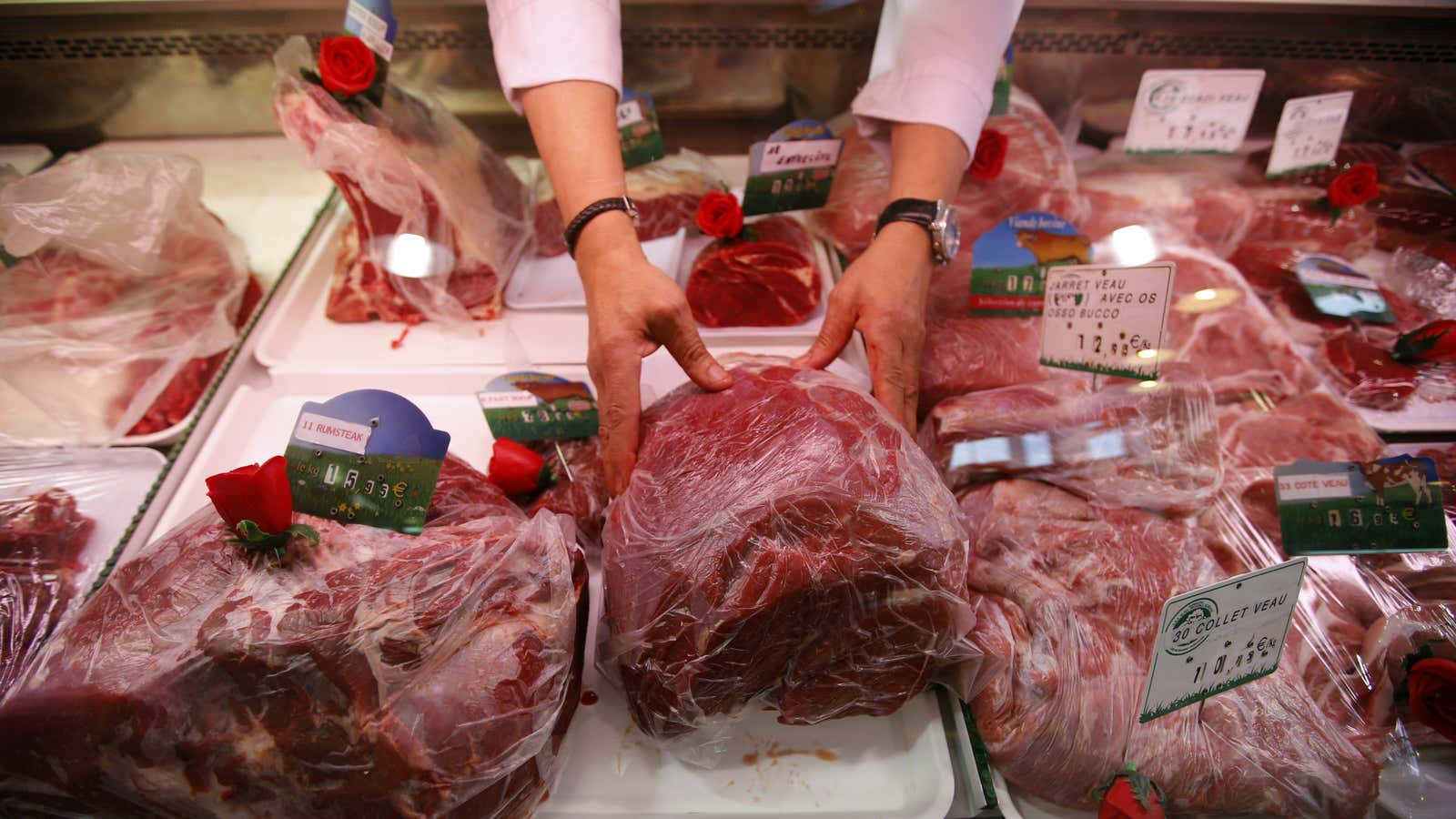Meat is a major driver of climate change, but would you be willing to eat less for the good of the planet? Or pay more for your meat? A recent study suggests the idea isn’t as controversial as some might expect.
In a new report, researchers from UK policy institute Chatham House carried out surveys in 12 countries, and focus groups in Brazil, China, the UK, and the US, to gauge public opinion on the issue, and determined there’s an appetite for a meat tax, as well other government interventions, such as more vegetarian options in school cafeterias and cutting subsidies to livestock farmers.
The report did not get into how much in extra taxes people would be willing to bear. The report suggests that any “backlash to unpopular policies would likely be short-lived.”
The participants generally believed it is the role of the government to address unsustainable consumption of meat, but only 21 of the 120 national plans submitted to the upcoming Paris Conference have commitments to reducing emissions from the livestock sector.
The global livestock sector produces between 10-15% of the world’s greenhouse gases—a problem that’s only likely to worsen. The average person in industrialized countries consumes around twice as much as experts deem to be healthy; the average American consumes three times as much, Chatham House noted. And as incomes rise in the developing world, so does meat consumption. Global meat consumption is forecast to increase by 76% on recent levels by mid-century.
By raising awareness of the negative impact of excess meat consumption on the planet—and our waistlines—more people would be inclined for the government to act, researchers say.
